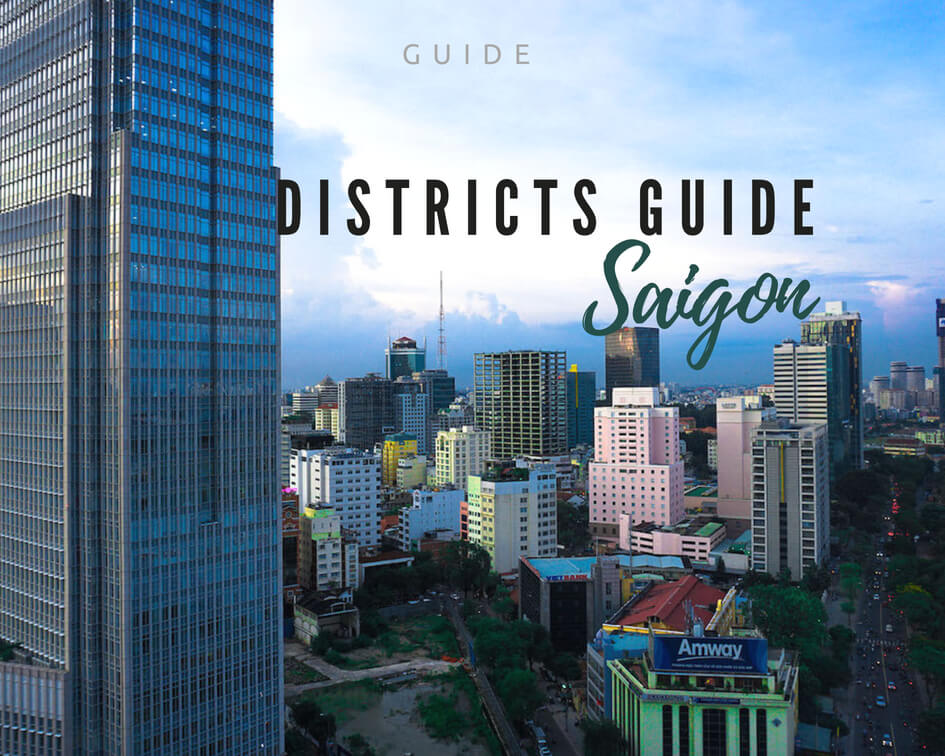LEASE CONTRACTS IN VIETNAM
Here are the top things to pay attention to when signing your rental contract.

My Saigon City has compiled a list of 9 perennial lease tips worth noting for successful renting in Vietnam!
First, some basics. Ensure that your new landlord offers you a lease. This is a minimum requirement for renting any property as it holds the landlord to some accountability. Secondly, many people lead busy lives, so they can sign a lease without actually ever reading it. Take a day or so to review your lease if you need to. Return the landlord’s copy once you have done so. You are within your rights to take some time for review.
So now, once you have your lease contract in hand, consider these main points to check:
1. Language
Helpful hint – never sign anything that is only in the Vietnamese language! Typically, lease contracts in Vietnam are in both English and Vietnamese languages. It is important to understand what you are signing. Should a discrepancy arise later, then between the English and Vietnamese languages, the Vietnamese version is considered the legal language. Surprisingly, Google Translate can be accurate if you need to check the Vietnamese version. If you have any doubts, then you’re also welcome to contact us for a discussion.
2. Names
Written English names, for non-English speakers, can produce quite amusing results. Your name may be hacked in any number of ways. Some of which you may not have even considered before! Often, English is not the landlord’s first language and so they can make some unintentional errors. It is your responsibility to check the spelling of all of the names written on the contract. Always ensure that the lease is under the names of all of the people living in your new home. This is particularly important for foreigners as your landlord is legally required to register all of the tenants occupying the property with the local police. Also, one or all of the tenants may need to submit a copy of the lease contract to register with your consulate in Vietnam.
3. Dates
Always check the dates on the lease. The dates recorded on the lease need to match the terms you have previously agreed upon with the property owner. Generally, the lessee will lose a deposit should the lease be terminated before the expiration date.
4. Currency
Although apartment and house listings are usually advertised in U.S Dollars here, we recommend that your lease agreement is in Vietnamese Dong. This is also a legal stipulation in Vietnam. Also, this way your rent will avoid any currency fluctuations and remain at a fixed price for the duration of your lease. Most foreigners are paid locally in VND anyway, so it makes good sense. Usually, your agent will negotiate in USD, but you will pay in VND. However, if you receive your salary in USD, or pay the monthly rent from abroad, it will not matter much. In this case, speak to your landlord about paying using your preferred currency. In any case, the lease contract should still state the rental price in VND.
5. Deposit
As in any country, when leasing in Vietnam, a refundable deposit is required. As a rule of thumb, the deposit amount is equal to two months rent for condominiums (apartments buildings), houses, and villas. Enquire as to the exact amount when visiting a property and before making your decision. If you have completed the duration of the lease and the landlord deems the property to be in good condition, you should receive your deposit back without any issues. Should you need to end the lease early, legally you will forfeit any right to the deposit. However, this is up to the discretion of the landlord. Should you need to leave your lease early, it is common here to locate another tenant to complete your lease term for you, so that you may receive your deposit. This needs to be worked out with your landlord directly.
6. Services and Facilities
Often, the best part about apartment living is the facilities and support services that you have access to. Make sure the services and facilities included are written within the scope of your lease contract.
Typically, these include the following:
- Cleaning service (how many times per week?),
- Parking (how many bikes?),
- Internet,
- TV/ cable,
- Running water,
- Drinking water (how many bottles?),
- Management fees (for apartments buildings or compounds),
- Swimming pool,
- Gym.
It is also a good idea to check if you can bring guests over to use the facilities.
7. Utilities and taxes
When budgeting for a new apartment, consider the additional charges that you will invariably receive each month. First, electricity prices vary greatly depending on the type of accommodation and whether or not you pay it directly to the supplier (EVN), or to your landlord. The official electricity retail prices range from 1,678 VND to 2,927 VND per kWh.
Water is either included in the rental price or not costly (fixed monthly rate per person, or paid according to your usage).
Normally internet is not included in condominiums (apartment buildings), houses, or villas. You can subscribe easily to an internet package from 12 US$ per month.
In any case, be sure to include any utility services covered by the landlord in your rental contract.
If your company, or employer, pays your rent directly to the landlord, they will most likely require a rental tax invoice from your landlord. In that case, ask your landlord if the tax is included in the rent (it usually isn’t) and if he/she can provide the tax invoice to your company. An additional fee of 10% on the rental price will be applicable.
8. Payment
In most cases, you can pay your landlord by cash or bank transfer but rarely by credit card. If transferring, ensure that the payment details (bank account holder’s name) matches the landlord’s name (lessor). If it doesn’t match, then ask for the reason (maybe a third party is managing the property and handling payments). This name should also be added to the lease under ‘authorized person’. The goal is to link every payment to the lease contract name. Have the landlord double check the bank account number as transfers will be denied if any number is off or the name is misspelled. The rent may then be in limbo for a few days. Once a transfer is made, send a screenshot of the receipt to the landlord so that he/she knows to expect the amount.
If you pay by cash, always get a receipt for each payment (rent and deposit) with the exact property address (including apartment number), date, rental period, names of the payer, and the receiver.
9. List of Furniture
Apartments and houses are either furnished, partially furnished, or unfurnished. If the accommodation you select is in the furnished, or partially furnished, categories the landlord should have a list prepared of the furniture, ready for when you move in. The list will not necessarily be comprehensive, so be sure to check if the main items are listed as well as the smaller items that are to be handed over (kitchen appliances, AC remotes, sets of keys, elevator cards…). If you find any discrepancies, do not hesitate to add them to the list, and ask your landlord or property manager to provide the missing item/s before signing. Take photos of any furniture defects or stains on the walls and send them to the apartment owner for their record.
So why use an agent when searching for a new home? Firstly, it is a free service to you as agents are paid by the landlords. Secondly, in the event of any issues, it is always a good idea to have an advocate, who knows the landlord, step in to try to assist and support you. There is nothing worse than facing issues in a foreign country and feeling like you are alone. An agent’s responsibility is to act as an intermediary should things become difficult. Thirdly, there is no need to bother your Vietnamese-speaking friends to help you with the landlord. You have a go-to person at the ready. It is worth noting that no general rules or frameworks regulate the brokers and real estate agencies in Vietnam. Word of mouth and referrals by friends is an excellent way to source a reputable agent.
Here is what you can expect your agent to take care of:
- the negotiation between you and the landlord (but don’t hesitate to ask for it, because some agents may be reticent to do it),
- the payment of the deposit to book the property (if in cash, make sure to get a signed receipt from the landlord, mentioning the address and apartment number, if any),
- the drafting or review of the lease contract (but read again carefully the most important parts of your lease contract such as the price and currency, the duration, and the utilities or services included),
- the move-in.
At the end of the process- relax and enjoy your new home! Create a haven that suits your lifestyle and a home where you can enjoy your space. Your time in this wonderful country will be richer than you imagine when living somewhere that you can truly call “home”.
Do you have more questions about lease contracts in Vietnam? Please get in touch!



